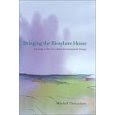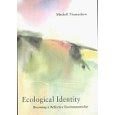

"You don't inherit place. You commit to it. You take its meanings upon yourself: its history, its rhythms, its defining character. When you make a place a home—an affectionately regarded range of ground from which you take identity (literally your home ground)—you are taking upon yourself an active duty of care."
Pete Hay
Dig deeper, however, and you realize, the extent to which Tasmania is a contested landscape. It's ecological and cultural heritage is fragile and threatened. It contains the dark shadow of an outrageous Aboriginal genocide, a controversial colonization—ecological imperialism, agricultural domestication, incarceration—and more recently fierce political disagreements as to how the landscape should be managed (wilderness protection versus industrial forestry).
The tentative compromise (historically speaking) is that southwest Tasmania is a world heritage area. But many of the remaining wilderness areas are unprotected and scheduled for logging and/or mining. A stunning new book of photography, Endangered Tasmania, presents luscious spreads of these landscapes, with liner notes explaining when they are scheduled for desecration. Given the "industrial" form of so much of Tasmania's natural resource extraction history, these "endangered" landscapes are truly at risk. It also seems to me, as an outsider, that Tasmania has yet to find a middle ground, a long-term plan for sustainable ecological land use, which would feature selective cutting, alternative energy, biodiversity protection, and economic opportunity.
Pete Hay, a political theorist/poet/essayist/place-based activist, addresses these challenges in a riveting and provocative series of essays (Vandiemonian Essays), which brilliantly reconstruct the history of the island (which he prefers to call Van Diemen's Land), striving to form an ecological identity, grounded in the ecological and cultural reality of the island.
This place, call it what you will, with it's compelling beauty, contested history, and remarkable ecology, isn't really "the end of the earth" as much as it is a living laboratory for the future of life on earth. Tasmania's future is no different than anyplace else. It's legacy and ancestry are inextricably linked, and a reconstructed history, one that is truly multicultural and ecological, will allow its inhabitants to live in place as they define it. Pete Hay describes his work as subversive because he (and his colleagues and fellow activists) are trying to reconceptualize the future of the island so that it fully embodies it's ecological and cultural heritage and potential.
What happens is Tasmania matters for the entire planet. When Pete asked Jake what brought him to the end of the earth, perhaps he was also thinking that this place is where the earth (and his own future) is renewed, fully understanding all of the struggles such renewal implies.





2 comments:
Wow, I felt the same way on our trip to Dominica. There was such a contrast of different futures Dominica could take. Most of the citizens of Dominica really want to be responsible and protect the national beauty they behold, but they see tourism and development as the only way to economically survive, both individually, and as a country.
They are at a crossroads as well with larger governments like China, and Venezuela actually bribing them with stadiums, fancy fishing ports, fancy new roads, among other things, in exchange for their votes on certain issues, and the building of an oil refinery on the island.
As little as your average Dominican has in terms of physical goods, and money, they were all for the most part the happiest people compared to your average American. Most people we talked to, said they wouldn't want to live anywhere else in the world. Honestly neither would I if I had what they had, not physical goods, but freedom, natural beauty, and other things that really can't be put into words.
You're right that freedom, natural beauty, and other things really can't be put into words sometimes! But with the help of our well-educated writers, impossible becomes possible! Order an essay, research paper, course work, or any other paper at http://dissertationwriting.services/ in order to get a fully-fledged academic project on time!
Post a Comment